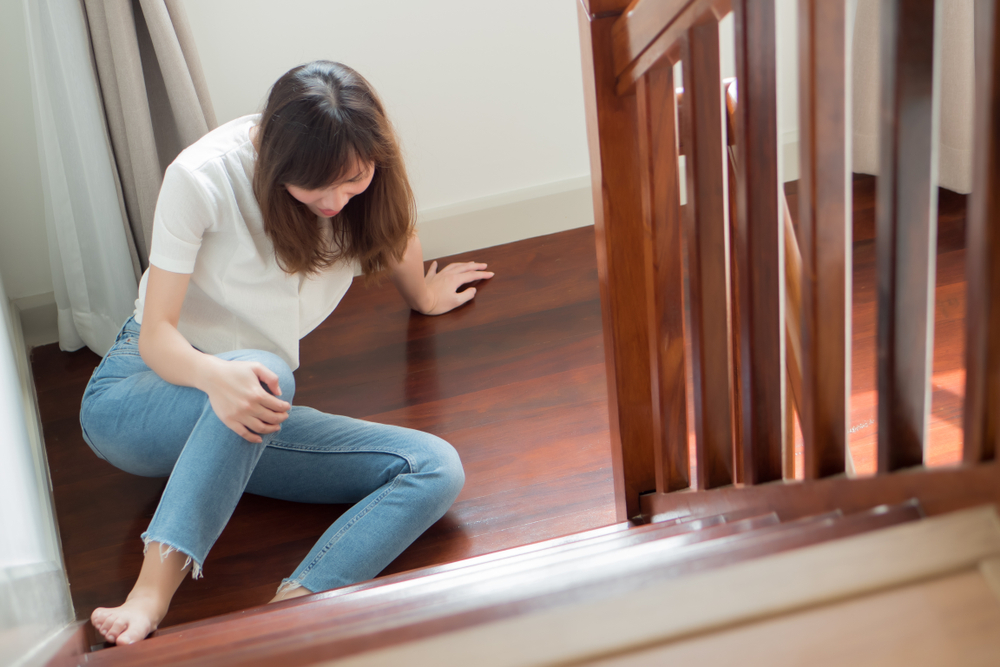Is Your Landlord Responsible if You Get Hurt?
Is Your Landlord Responsible if You Get Hurt?
If you get hurt due to a dangerous condition on the property you rent, you can hold your landlord responsible for paying your losses. The degree of the landlord’s liability depends on the terms of your lease, the location of your property, where on the property the injury happened, and the nature of the hazard that caused it.
Here’s an overview of the legal concepts and practical considerations surrounding a landlord’s liability for a tenant’s injuries. Contact an experienced premises liability lawyer in Orange County today for a free consultation to learn more about your right to injury compensation from your landlord.
Schedule a Free Initial Consultation
Overview of Landlord-Tenant Laws and Leases
Landlord-tenant laws govern the rental of residential and commercial property. They set the rules for various issues surrounding property rentals, including the proper handling of security deposits, tenants’ rights of occupancy, and how much landlords can raise rents.

Leases are agreements between landlords and tenants for the rental of a property. They set the basic terms of a specific tenancy, such as its duration, the rent the tenant will pay, and the obligations of landlords and tenants regarding property upkeep, maintenance, paying for utilities, and renewals.
Most states and some municipalities have a body of landlord-tenant laws on its books. Some of those laws reflect the absolute obligations of landlords or tenants that neither can deviate from, even by agreement. Others are so-called default rules—laws that apply in the absence of a lease specifically governing their subject matter.
A state’s landlord-tenant laws may require a residential landlord to provide services such as running water and heat. Other laws in the same state may set terms that landlords and tenants can amend by agreement, such as how much notice the tenant must give to renew a rental term.
The Landlord’s Duty of Care
State landlord-tenant laws generally require landlords to exercise a basic duty of care. They typically provide that landlords must maintain their rental properties in reasonably safe condition for tenants’ use. A residential landlord cannot usually assign the obligation to maintain the basic features that make a property habitable to the tenant under their lease terms, such as maintaining the structure’s integrity and providing working heat and plumbing.
Commercial landlords and tenants generally have greater flexibility in allocating responsibility for the safety of the rented premises, although a landlord may have an absolute duty to address or warn the tenant about hidden or non-obvious hazards.
The landlord’s duty of care encompasses the rented apartment or unit and any common areas the tenants share, such as parking lots, walkways, and entrance areas. This duty is typically more fixed in stone for residential landlords than commercial landlords.
A residential landlord usually cannot require tenants to maintain common spaces, and if a dangerous condition in a common area causes an injury, it’s typically the landlord’s responsibility. The terms of a commercial lease, however, may obligate one or more tenants to pay for the upkeep of common areas and ensure their safety for the public.
Landlord-tenant laws and lease provisions can vary significantly between states and tenancies. The length of time a landlord has to fix a reported issue, or the amount a landlord can raise your rent at the end of a lease term, can differ widely based on the property’s jurisdiction and what your lease discloses.
Your state might require landlords to undertake particular safety measures that others don’t, or your lease might obligate you to pay for specific maintenance.
Always speak with an experienced premises liability attorney in your state to assess your landlord’s obligations for injuries resulting from safety hazards.
Common Scenarios Leading to Tenant Injuries
Tenants can get hurt in various ways on properties they rent. Let’s discuss some of the most common scenarios.
Slip and Fall Incidents
Slip and fall accidents are common incidents leading to injuries at rental properties. These accidents can happen anywhere on a property but are particularly common in walkways, staircases, parking lots, and entrances.
Harmful falls can occur due to damaged flooring, broken steps, inadequate lighting, and ice and snow buildup, among other preventable property hazards. Landlords often have responsibility for addressing these dangerous conditions, particularly if tenants point them out.
Injuries Due to Poor Maintenance
Another common scenario that can injure tenants is poor property maintenance. Damaged stair railings, faulty wiring, and ceiling collapse due to water leakage can all cause tenants to sustain injuries. Tenants can hold landlords who fail to conduct regular inspections or adequate maintenance liable for the resulting injuries to their tenants.
Injuries Due to a Lack of Security
Tenant injuries can also occur due to inadequate security at a rental property, such as when landlords fail to maintain working locks on doors and windows, well-lit premises, or surveillance systems, resulting in the tenant falling victim to theft, assault, or other violent crime.
Injuries From Exposure to Hazardous Materials
Tenants may also suffer harm from exposure to hazardous materials, such as lead, mold, asbestos, or carbon monoxide. Laws often require landlords to keep their properties free of such harmful substances. The failure to remediate hazardous conditions can constitute landlord negligence and lead to liability for tenants’ injuries and health problems.
Seeking Compensation for Injuries at a Leased Property
If you sustain an injury on rented property due to hazardous property conditions, you may seek compensation. Multiple parties, not only your landlord, could hold liability for your losses, and you may pursue damages.
Who Can You Hold Responsible?
You can hold your landlord liable if your injury occurred due to a property hazard that they reasonably should have fixed or warned you about under your state’s landlord-tenant laws or the terms of your lease. Liability can extend beyond your landlord, however.
Other individuals, businesses, or entities responsible for creating or worsening the dangerous conditions that led to your injury could also owe you damages, including maintenance companies, construction contractors, and other tenants.
An experienced premises liability attorney can identify all the possible parties who may share responsibility for your injury to maximize your chances of receiving full compensation. Talk to a lawyer today to determine who may owe you monetary damages for the injury you sustained on your rental property.
Compensation You Could Receive
You can claim compensation for a range of physical, emotional, and financial injuries as the victim of an incident due to a hazard on your rental property that someone else needed to fix.
Compensation may include:
- Current and future costs for all necessary medical treatment related to your injury.
- Lost earnings from missing work while healing.
- Loss of future income or opportunities due to a temporary or permanent disability.
- The cost of repairing or replacing your damaged personal property.
- Physical pain and discomfort.
- Emotional anguish and mental health struggles.
- Diminished quality or enjoyment of life.
- Scarring, disfigurement, or loss of bodily function.
You could also seek punitive (or exemplary) damages for your landlord’s or another party’s particularly egregious or reckless actions. These damages punish the wrongdoer and deter similar misconduct.
If a tenant dies as a result of a landlord’s or someone else’s negligence, the deceased victim’s surviving spouse or immediate family members may pursue a wrongful death claim. Damages recoverable in a wrongful death lawsuit include loss of the victim’s financial support, services, companionship, consortium, and guidance, as well as medical, funeral, and burial expenses.
An experienced premises liability lawyer can evaluate the harm a victim suffered to determine the maximum amount they can claim as damages. Every case differs, but injured tenants may recover substantial sums to pay their expenses and support their future needs.
Why You Need a Premises Liability Lawyer To Handle Your Case
If you sustained an injury at a rented property because of a dangerous condition that someone else should have addressed or warned you about, hire an experienced premises liability lawyer to maximize your chances of securing fair compensation.
A premises liability lawyer brings experience, understanding of the law, and case management resources, all of which are instrumental in building a strong claim.
A lawyer can, for example:
- Thoroughly investigate the incident to determine how it happened and whether your landlord or someone else is liable for your accident.
- Work with medical experts to determine the extent of your injuries and long-term prognosis.
- Build a case proving the landlord’s or other responsible parties’ negligence.
- Handle all communications with the landlord, insurance companies, and defense lawyers for you.
- Calculate the full extent of your damages, including medical costs, lost earnings, and emotional distress so that any legal action you take seeks the maximum possible damages.
- Negotiate with the landlord, other liable parties, and insurance companies for a fair settlement.
- Take your case to court to prove liability and damages to a judge and jury.
- Follow through to ensure you receive every dollar relating to the terms of a settlement, court judgment, or jury verdict.
Hiring a premises liability lawyer to handle these tasks is affordable, regardless of your financial situation. Reputable lawyers typically offer a free consultation where you can learn about your rights and options without any financial obligation (even if you decide not to hire them or proceed with legal action.) Lawyers for injured tenants generally work on a contingent fee basis.
Contingency means that they only receive payment if they deliver results. You pay nothing upfront and owe nothing unless they win your case.
Frequently Asked Questions About Tenant Injury Cases
When grappling with injuries due to a dangerous condition on a rented property, you may have many questions. Let’s look at some common inquiries to illustrate how these cases generally work.
Will I Lose My Apartment if I Sue My Landlord for My Injuries?
No. Landlords cannot legally evict a tenant for exercising a legal right, such as filing a lawsuit for injuries they sustain on a property due to the landlord’s negligence. Laws protect tenants from retaliation. Speak to a premises liability attorney to protect your rights.
How Long Will I Wait To Receive Compensation?
The timeline for receiving compensation varies between cases. It depends on the case’s complexity, the severity of your injury, the damages you’re claiming, and whether the case settles out of court or goes to trial.
Simple claims with clear liability may resolve sooner, while complicated cases that go to court may take longer. The most efficient way to tackle the process is to hire an experienced lawyer to handle your claim.
How Much Money Could I Receive?
The amount of compensation you could receive depends on several factors. These include the severity of the injury, the extent of your financial losses (such as medical bills and lost earnings), your lawyer’s skill, diligence, and reputation, and the liable parties’ financial resources (particularly liability insurance coverage).

Greg Bentley & Keith More Premises Liability Attorney in Orange County
Contact an Experienced Premises Liability Lawyer Today
Navigating the complex and often stressful landscape of landlord liability and personal injury law can seem daunting. You don’t have to do it alone. A skilled and experienced premises liability lawyer can clarify your rights, gather evidence, negotiate on your behalf, and pursue the maximum compensation for your injuries.
If you sustained an injury on your rental property due to the negligence or recklessness of your landlord, do not hesitate to get the legal help you need. Contact an experienced premises liability lawyer today for a free consultation.
Schedule a Free Initial Consultation Today!


